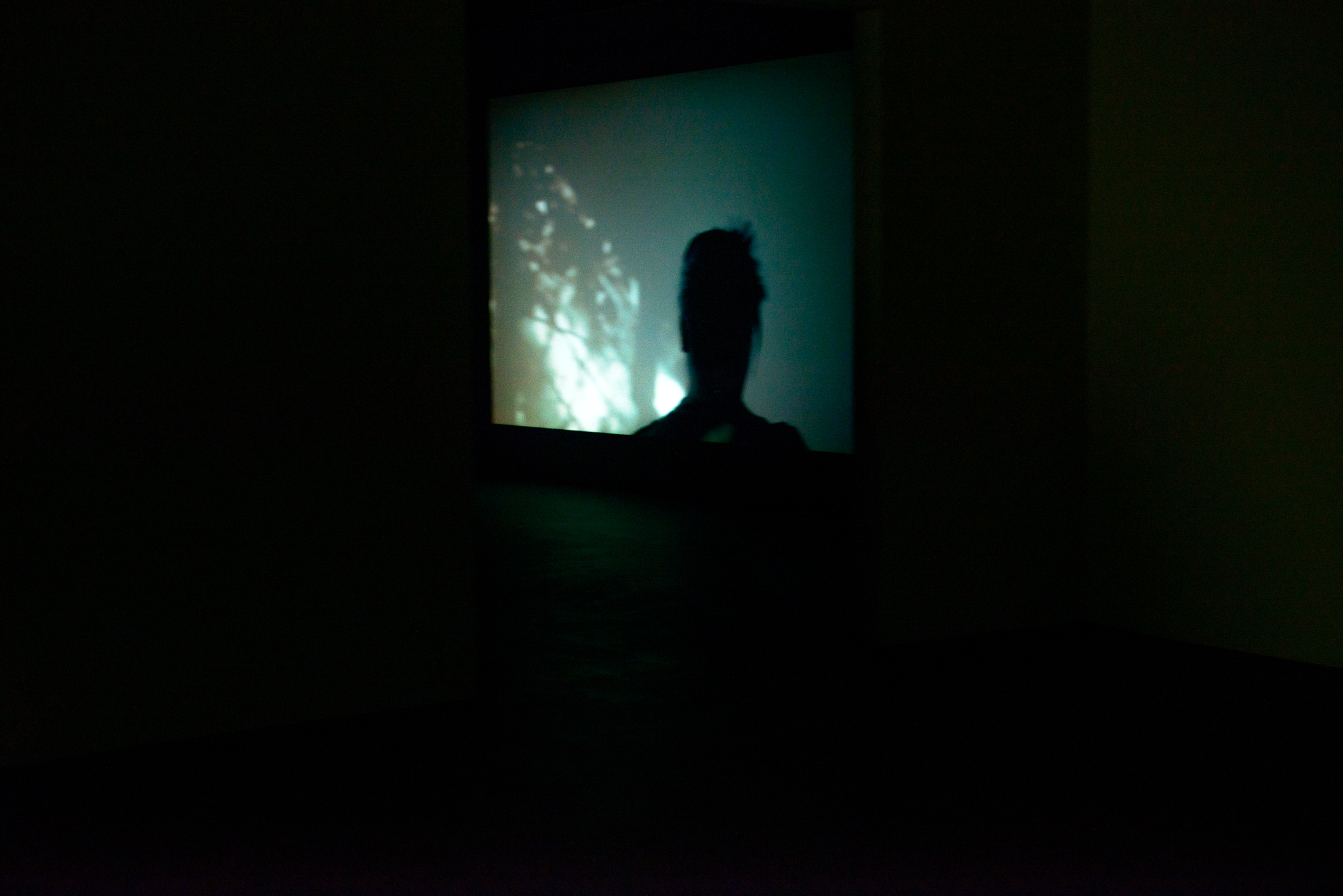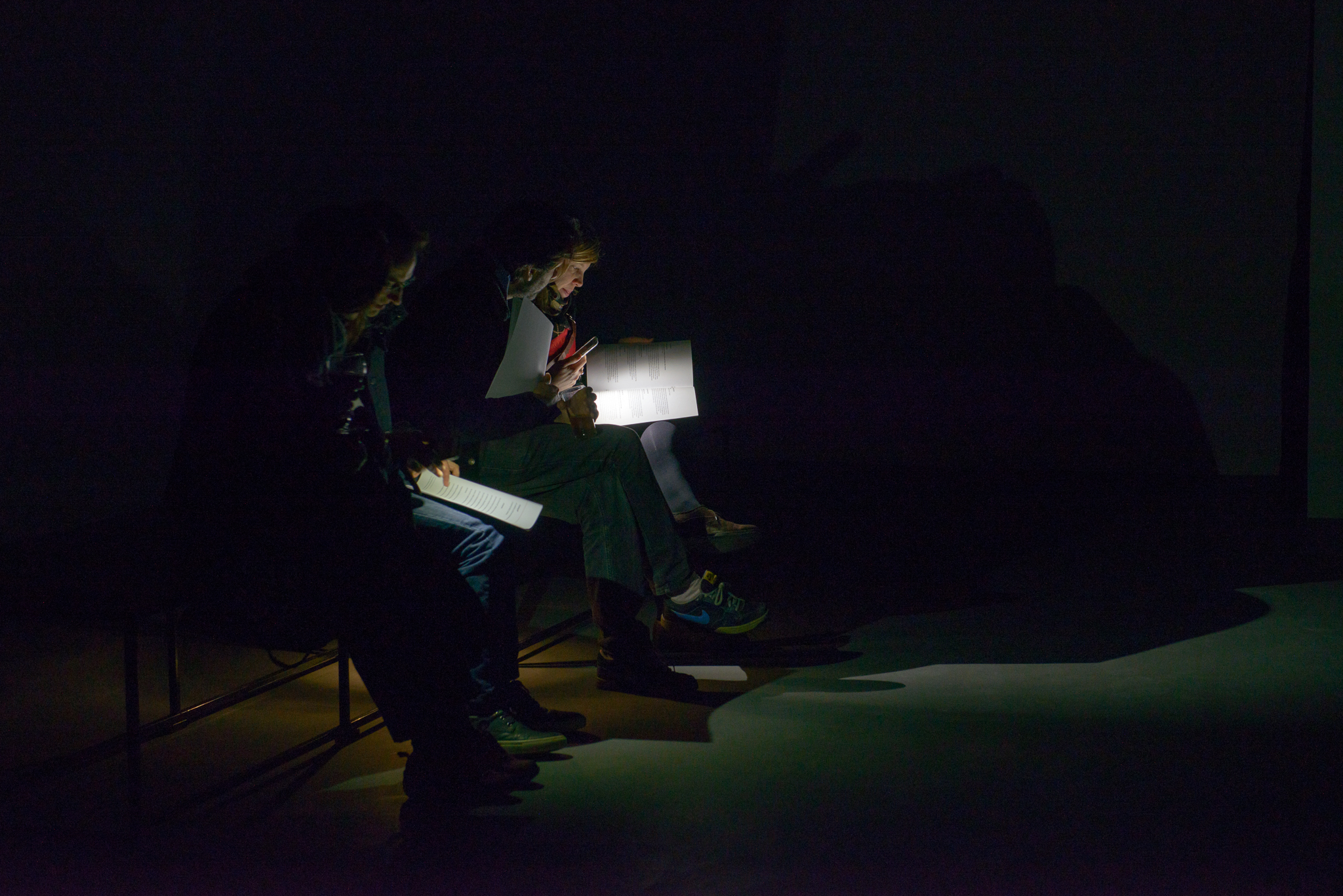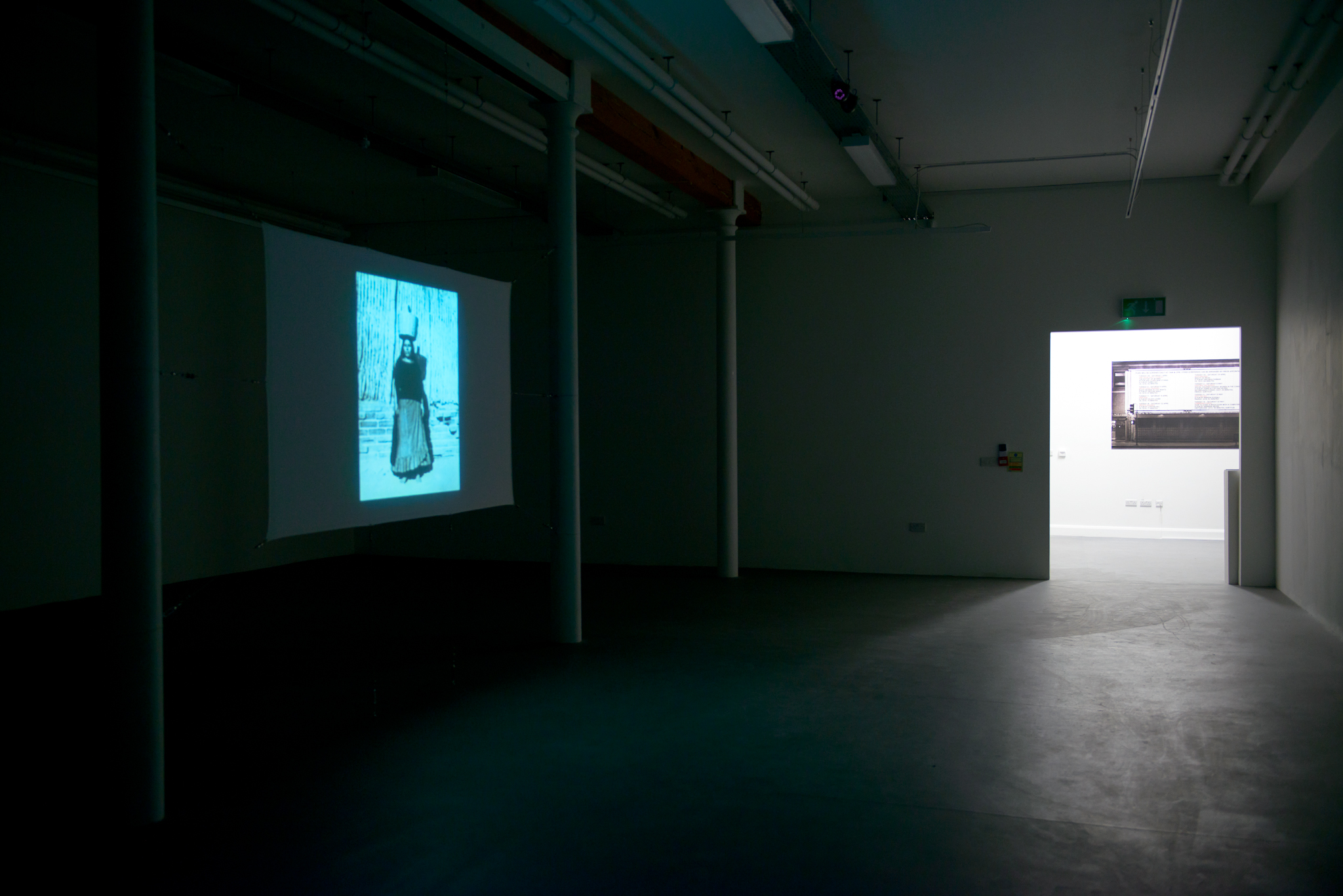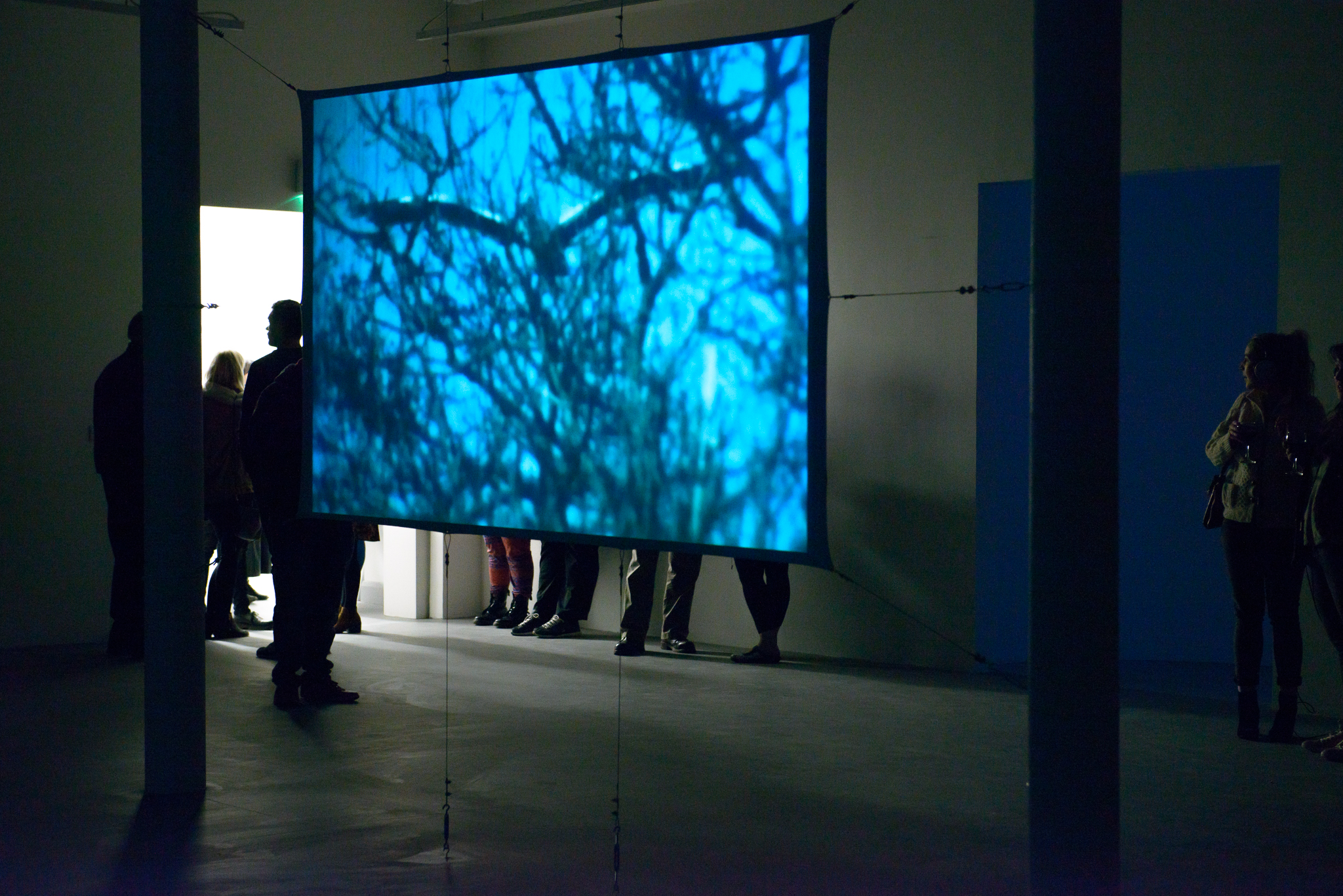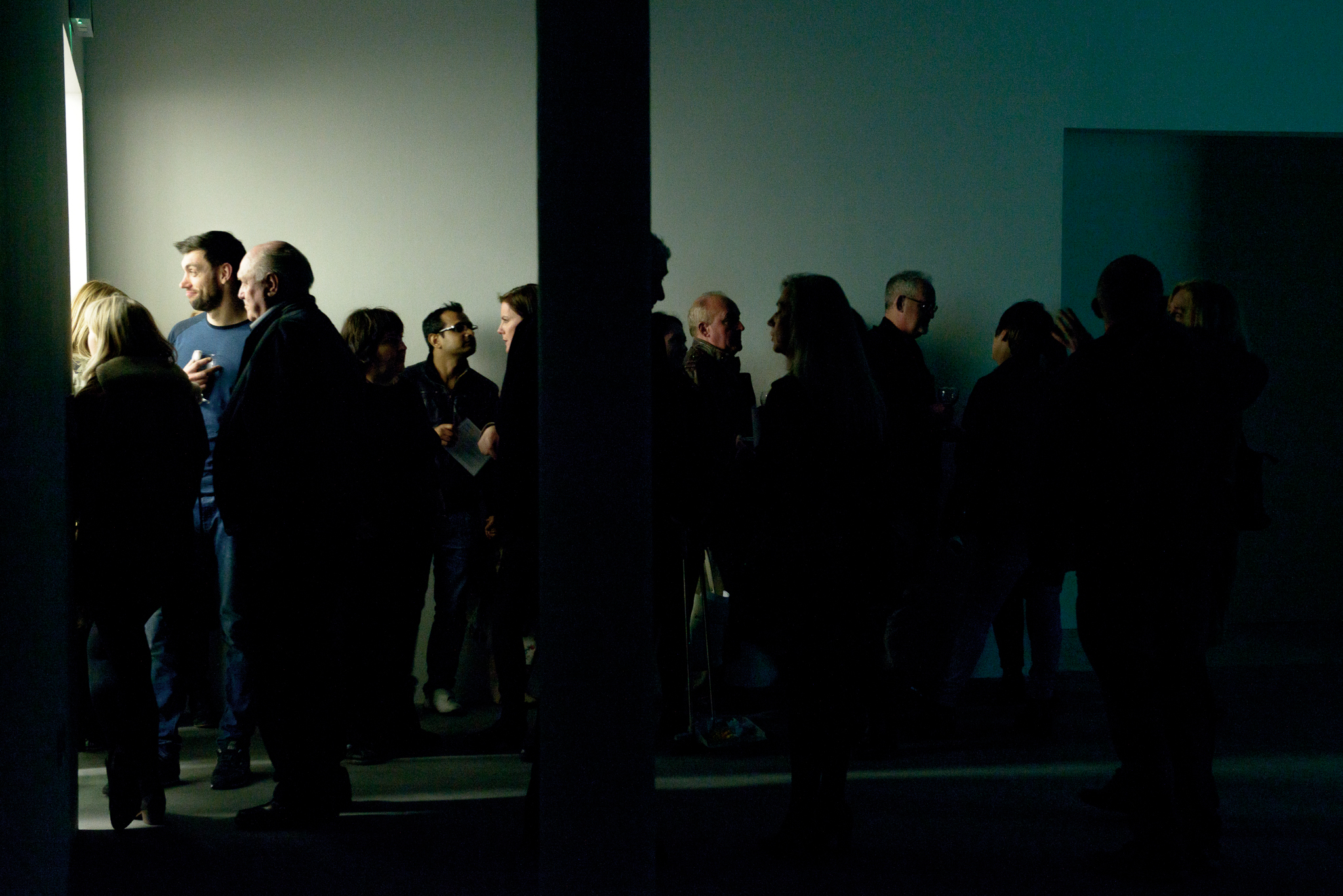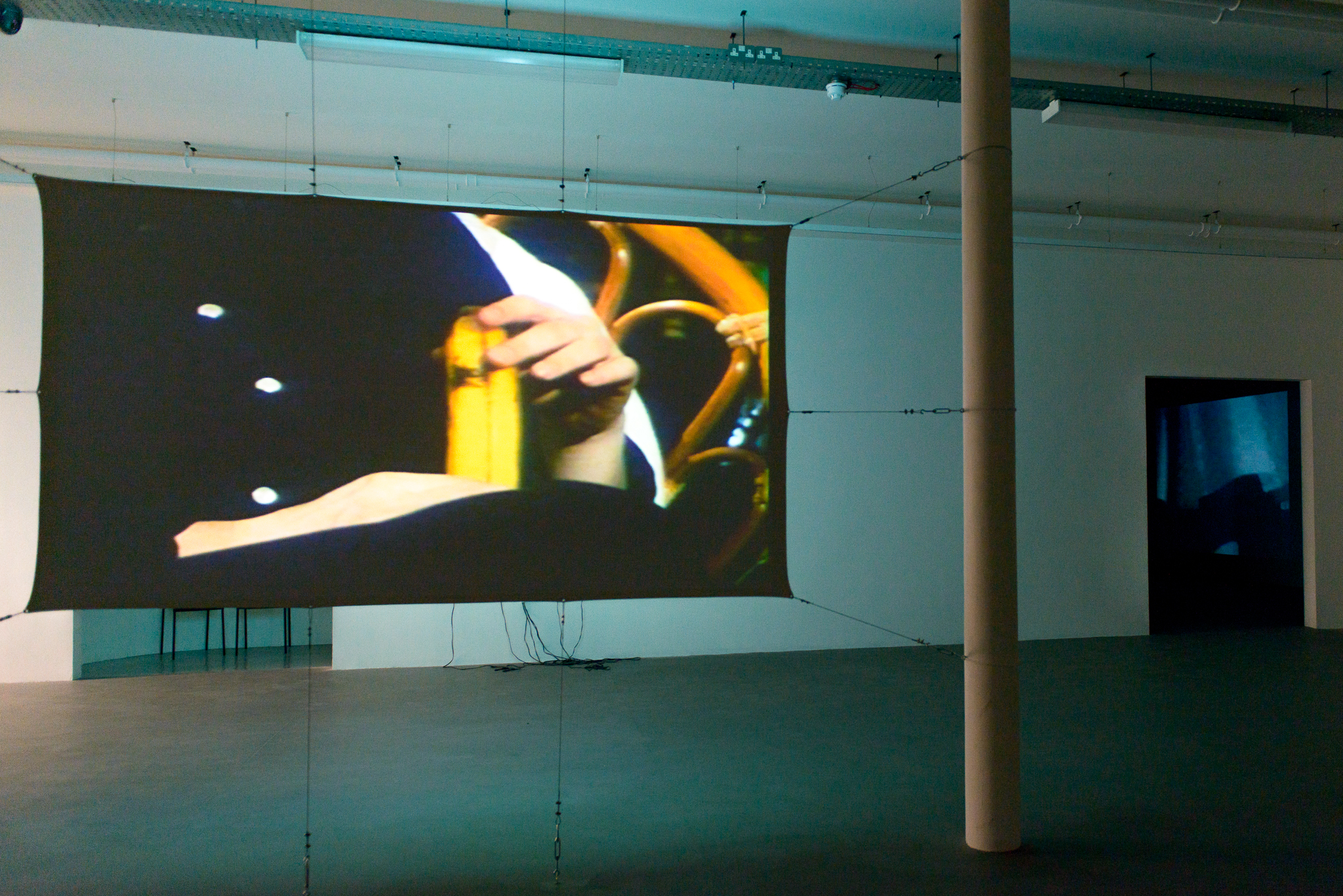Void Gallery is proud to present a programme of documentary, experimental, and dramatic works. Showing Off: an exhibition of moving image by women artists and film makers is curated by Mhairi Sutherland and presented in association with WMM Women Make Movies New York. It is an exhibition of moving image by women artists and film makers that explores the international diversity, history and achievement of women film makers and artists.
The thematic framework is that of civil rights explored from a feminist perspective and viewed through the lens of current events impacting on movement and immigration issues. In March 2017, the month of International Women’s Day, Void is proud to present a programme of documentary, experimental and dramatic works, in association with Women Make Movies (WMM) – a New York based media arts organisation. First established in 1972, in order to address both the under and misrepresentation of women in the film and media industries, WMM provides services for both makers and users of film and video.
In 1997 the Museum of Modern Art in New York (MOMA) honoured 25 years of WMM with a special tribute and retrospective exhibition showing 25 Women Make Movies titles, whilst in the 30th anniversary year WMM presented a record breaking ten films at the Sundance Film Festival, including the Special Jury Prize winner Lourdes Portillo in January 2002. Currently WMM collects and distributes over 500 films, representing over 400 filmmakers, from 40 countries worldwide.
Integral to the film screening season at Void will be a dynamic weekly programme of discussion and screenings of film and video made by locally based filmmakers aimed at connecting the themes of the international screenings with the issues of community interest groups and individuals.
Feature Films Gallery 2
ALL FILMS SHOWN AT 11AM AND 2PM
Please contact us to arrange an alternative viewing time if this does not suit.
Tuesday 28 – Saturday 1 April
Girl From God’s Country: The History of Women in Film and Other War Stories
A film by Karen Day
(US, 2016, 66 minutes)
This feature film is the untold story of the first female independent filmmaker and action-adventure heroine, Nell Shipman (1892-1970), who left Hollywood to make her films in Idaho. An unadulterated, undiscovered adventure tale of a pioneering woman who rewrote the rules of filmmaking, and, in so doing, paved the way for independent voices – especially prominent female voices in today’s film industry. Her storylines of self-reliant women overcoming physical challenges in the wilderness and, often, rescuing the male lead, shattered the predictable cinematic formulas of large studio productions.
Tuesday 4 – Saturday 8 April
Reflections Unheard: Black Women in Civil Rights
A film by Nevline Nnaji
(US, 2013, 81 minutes)
Where do black women activists fit into the epochal struggles for equality and liberation during the 1960s and 70s? This feature-length documentary unearths the story of black women’s political marginalisation – between the male dominated Black Power movement and second wave feminism, which was largely white and middle class – showing how each failed to recognise black women’s overlapping racial and gender identities.
Tuesday 11 – Saturday 15 April
Deep Run
A film by Hillevi Loven
(US, 2015, 75 minutes)
Produced by Susan Sarandon, this film is a powerful verité portrait of trans life in rural North Carolina. Exiled by her family and rejected by an ex-partner, 17-year-old Spazz has no one to lean on for support. But when Spazz falls in love again and summons up the courage to become Cole – a strong-willed trans-man – his candid humour and steadfast all-inclusive Christian beliefs counter the bigotry he experiences daily. This deeply personal documentary reveals rebirth and courage within America’s deeply conservative Bible Belt as Cole struggles to find a church that will affirm his identity and the couple’s relationship.
Tuesday 18 – Saturday 22 April
Private Violence
A film by Cynthia Hill
(US, 2014, 77 minutes)
This EmmyTM Nominated documentary explores a simple but deeply disturbing fact of American life: the most dangerous place for a woman in America is her own home. Every day in the US at least four women are murdered by abusive (and often, ex) partners. Through the eyes of two survivors – Deanna Walters, a mother who seeks justice for the crimes committed against her at the hands of her estranged husband, and Kit Gruelle, an advocate who seeks justice for all women – we bear witness to the complex realities of intimate partner violence. Their experiences challenge entrenched and misleading assumptions, providing a lens into a world that is largely invisible but embedded in many women’s lives.
Tuesday 25 – Saturday 29 April
Alice Walker: Beauty in Truth
A film by Pratibha Parmar
(US, 2013, 84 minutes)
This expressive film tells the compelling story of an extraordinary woman. Alice Walker made history as the first black woman to win the Pulitzer Prize for fiction for her ground-breaking novel The Color Purple. Her early life unfolded in the midst of violent racism and poverty during some of the most turbulent years of profound social and political changes in North American history during the Civil Rights Movement. Mixing powerful archival footage with moving testimonials from friends and colleagues such as Howard Zinn, Angela Y. Davis, Gloria Steinem, Beverly Guy-Sheftall, Quincy Jones, Steven Spielberg and Danny Glover.
Tuesday 2 – Saturday 6 May
Fighting the Silence: Sexual Violence against Women in the Congo
A film by Femke & Ilse van Velzen
(Netherlands/Congo, 2007, 53 minutes, French, Subtitled)
The Democratic Republic of the Congo’s seven-year war was the deadliest ever recorded in Africa. During that time, more than 80,000 women and girls were raped. Only now that the country is formally at peace are the consequences of this brutality becoming truly visible. This film tells the story of ordinary Congolese women and men that are struggling to change their society: one that prefers to blame victims rather than prosecute rapists. Rape survivors and their families speak out openly about the suffering they endured because their culture considers women second class citizens and rape a taboo. They give voice to thousands of other survivors and their families who have chosen to hide their grief and remain silent for fear of being rejected by their families and community. Soldiers and policemen share their (shocking) views about why rape continues to flourish despite the war having officially ended four years ago.
Tuesday 9 – Saturday 13 May
Into the Sea
A film by Marion Poizeau
(France, 2014, 52 minutes)
This powerful, uplifting film features Iranian women Mona Seraji and Shahla Yasini with champion surfer Easkey Britton – an internationally renowned surfer, artist, scientist and explorer from Ireland with a PhD in Environment and Society. Accompanied by French filmmaker Marion Poizeau, Britton went to Iran with the simple goal of sharing her love of surfing and making it accessible to everyone. Mona, an Iranian snowboarder, and swimmer Shahla, joined them. Together they planted the seed for new opportunities and made history, becoming the first women to surf in Iran.
Tuesday 16 – Saturday 20 May
Forbidden Voices: How to Start a Revolution with a Computer
A film by Barbara Miller
(Switzerland, 2012, 96 minutes, Subtitled)
Their voices are suppressed, prohibited and censored but world-famous bloggers Yoani Sánchez, Zeng Jinyan and Farnaz Seifi are unafraid of their dictatorial regimes. In Cuba, China, and Iran, their blogs shake the foundations of the state information monopoly, putting them at great risk. This film accompanies these brave young cyberfeminists on perilous journeys. Eyewitness reports and clandestine footage show Sánchez’s brutal beating by Cuban police for criticizing her country’s regime; Chinese human rights activist Jinyan under house arrest for four years; and Iranian journalist and women’s advocate Seifi forced into exile, where she blogs under a pseudonym. Tracing each woman’s use of social media to denounce and combat violations of human rights and free speech in her home country, this film attests to the Internet’s potential for building international awareness and political pressure.
Short Films Gallery 1
Screen 1 – Hair Piece, Frida, Voices of Muslim Women from the US South
Hair Piece – A Film for Nappy-Headed People
A film by Ayoka Chenzira
(1985, 10 minutes)
An animated satire on the question of self-image for African American women living in a society where beautiful hair is viewed as hair that blows in the wind and lets you be free. Lively tunes and witty narration accompany a quick-paced inventory of relaxers, gels, and curlers. Such rituals are all-too familiar to African American women – and indeed to all women confronted with an unattainable ideal of beauty. This short film has become essential for discussions of racism, African American cinema, and empowerment.
Frida Kahlo and Tina Modotti
A film by Laura Mulvey and Peter Wollen
(US, 1983, 29 minutes)
Originally commissioned for an international art exhibition this short film is an unconventional portrait of painter Frida Kahlo and photographer Tina Modotti. Simple in style but complex in its analysis, the film explores the divergent themes and styles of two contemporary and radical women artists, working in the upheaval of the aftermath of the Mexican Revolution.
Voices of Muslim Women from the US South
A film by Maha Marouan and Rachel Raimist
(US, 2015, 32 minutes)
When one thinks of the American Deep South, the image of veiled Muslim students strolling the University of Alabama campus is the last thing that comes to mind. This documentary explores Muslim culture through the lens of five University of Alabama Muslim students. The film tackles how Muslim women carve a space for self-expression in the Deep South and how they negotiate their identities in a predominantly Christian society that often has unflattering views about Islam and Muslims. This film examines representations and issues of agency by asking: how do Muslim female students carve a space in a culture that thinks of Muslims as terrorists and Muslim women as backward?
Screen 2
Guerillas in our Midst, Artist, Amy!
A film by Amy Harrison
(1992, 35 minutes)
This seminal work presents a savvy exploration of the machinations of the commercial art world during its boom in the 1980s and brings the Guerrilla Girls to the screen. This anonymous group of art terrorists has succeeded in putting racism and sexism on the agenda in the art world since 1985 and their witty and creative tactics have changed the face of political and cultural activism. Interviews with key figures in the Manhattan art scene, record-breaking auction sales, exhibition openings and interviews with the Guerrillas Girls themselves combine to highlight how the myth of the heroic male painter is perpetuated.
Artist
A film collaboration between Tracey Moffatt and Gary Hillberg
(US, 1999, 10 minutes)
Internationally acclaimed photographer and filmmaker Tracey Moffatt takes the viewer on a fast-paced journey through Hollywood’s depiction of the artist. Using a wealth of clips from classic cinema biopics and popular television sitcoms, the video voyage spans centuries of art and art making, to reveal how five decades of mainstream media have perceived the creative process and creators themselves. Punctuated by recurrent gestures – the confident whisk of the paint brush, the futile laugh of frustration, and the violent destruction of one’s own work – this amusing, thought-provoking array of well-known images paints an incisive portrait of the artist as a total Hollywood fabrication.
Amy!
A film by Laura Mulvey and Peter Wollen
(US, 1980, 30 minutes)
This film is by renowned film scholar Laura Mulvey; co-written and co-directed with Peter Wollen. Mulvey’s seminal early 1970s essay Visual Pleasure and Narrative Cinema, is one of the most widely cited and anthologized articles in the field of contemporary film theory. This groundbreaking work investigated questions of spectatorial identification and its relationship to the male gaze. With this essay and other articles, Mulvey helped establish feminist film theory as a legitimate field of study. Amy Johnson was the first woman to fly solo from Great Britain to Australia; this experimental documentary combines newsreel footage of the aviator’s arrival and dramatic recreations of events from her life as well as contemporary discussions by feminist groups about heroism in this most unconventional biopic.
Short Films Gallery 3
Absences, Amazonia, All Water has a Perfect Memory
Absences (Ausencias)
A Film By Tatiana Huezo
(Mexico/El Salvador, 2015, 26 minutes, Spanish, Subtitled)
This film exposes the ever-intensifying phenomenon of enforced disappearance in Mexico. A boy and his father disappear one morning, snatched off the road by armed men. Left behind, alone with her daughter Lulu, a victim who refuses to give in decides to tell the unacceptable story: the unfillable void, the absence of loved ones, the unanswered questions and the suffocating silence. After 5 years, absence has her living in a limbo, which gives way to desire, hope and the struggle to find her 9 year old son Brandon and her husband, alive. This hauntingly beautiful short film illuminates the way disappearance and loss affects women and broadens our awareness on disappearance and its social consequences in Mexico and Central America.
Amazonia
A film by Nandini Sikand
(US, 2001, 8 minutes)
In this highly personal and visually evocative testimonial, critically acclaimed South Asian filmmaker Nandini Sikand poignantly presents her sister’s triumphal recovery from the emotional and physical scars of breast cancer. Lyrically incorporating poetry, experimental video and Super 8 montage, this moving piece looks at the myth of Amazonian women – warriors who were said to have cut off their right breast to become better archers – and compares their legendary battles to the war being waged against breast cancer. Traversing the pulsating and dizzying streets, the city and body become one to highlight women’s lives as triumphant urban warriors. Moving and inspiring, this short experimental video is a tribute to all women who have struggled with breast cancer.
All Water Has a Perfect Memory
A film by Natalia Almada
(Mexico/US, 2001, 19 minutes, Spanish/English, Subtitled)
This poignant experimental documentary explores the effects of tragedy and remembrance on a bi-cultural family. At seven months old filmmaker Natalia Almada lost her two year old sister Ana Lynn in a drowning accident at her childhood home in Mexico. Inspired by an essay written by Toni Morrison in which she speaks of the Mississippi River’s ability to conjure memories, this moving piece serves as a meditation on the cultural and gender differences between the filmmaker’s North American mother and Mexican father, in the face of their daughter’s death. Through personal recollections narrated by each family member, including her brother, Almada incorporates Super-8 home movies, photographs, and fabricated images to weave together a touching and moving visual memory of Ana Lynn.
Additional Events
Friday Night Films
Each Friday evening we screened a dynamic programme of film and video made by local and international film makers. This included a public screening of Two Minute Masterpieces in partnership with BBC Arts and Northern Ireland Screen.
Download the Press Release below:
Art Bits – Showing Off
Acknowledgements
Showing Off was kindly supported by the Women Make Movies, John Thaw Foundation, Enkalon Foundation, Acorn Fund, Esmee Fairbairn, Arts Council Northern Ireland Lottery Funded, the Community Foundation for Northern Ireland
